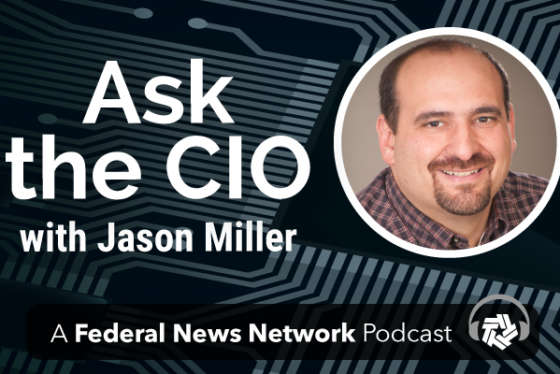IT upgrades highlight MSPB’s innovations in how it meets its mission
CIO Tommy Hwang said the agency is receiving more documents electronically from agencies and law firms than ever before. He also is moving the email system to the...
wfedstaff | April 17, 2015 3:45 pm
By Jason Miller
Executive Editor
Federal News Radio
More than half of all appeals and case documents come to the Merit Systems Protection Board electronically. That’s a huge increase over the last two years, but not nearly enough.
MSPB is launching a pilot for agencies and law firms in two of their eight regional offices to send appeals and other case documents only through the e-file system.
“So far that’s been going very well,” said Tommy Hwang, MSPB chief information officer. “We have good feedback and haven’t had any major issues. I see that progressing forward and that will increase our percentages.”
Hwang said about 52 percent of appeals came in electronically as of the end of last year, while about 53 percent of all pleadings and supporting documents from agencies and attorneys came in electronically.
“The benefits for the agencies, attorneys and MSPB are clear,” he said. “If you look at e-appeals, it allows appellants to file from anywhere at any time. They can receive documents and information in a more timely manner and they get notifications about their cases more quickly. It also gives us cost savings, just from less printing, mailing and copying, and the things we usually have to go through to store documents.”
The e-file system is one of several business systems MSPB moved online and away from paper over the last few years.
Hwang said his office led the development of an Intranet site that provides several online applications to help improve the internal processes of the agency.
Employees can access the office calendar, share appointments or hearings, know when staff is on leave or working from home and use the learning management system to track training.
Hwang said the Intranet also includes the ability to search for cases or legal decisions quickly and other things such as access to the agency’s acquisition system, help desk ticketing system, the project management, and time and attendance systems.
All of this data flows through the document management system built on top of apps to handle workflow.
“Our document management system right now is not built for real time collaboration, but does have version control so if someone has checked out a document, someone else can’t make the same edits, and versions will be saved so you can keep track of that,” Hwang said. “The other thing that is helpful is we redesigned our public website and content automatically refreshes itself. If we put out a new decision, which we do almost every day, once we save to our document management system, the content will be automatically updated to site.”
But currently those systems are only available through the network, but not by using mobile devices.
Hwang said MSPB is trying to fix that two ways. The first is through the implementation of a virtual desktop interface (VDI).
“We also implementing a private cloud by viritualizing all our servers, and I hope to virtualize our desktop too,” he said. “We’ve found some of our more important business applications, specific to our agency, such as our document management system and our case management system, could not be easily moved online because of legacy nature of how they were built. So we are planning on using VDI to access those apps in a private cloud.”
The second thing Hwang’s office is doing to make applications more accessible is moving email to the cloud and implementing a bring-your-own-device strategy (BYOD).
He said MSPB is using Microsoft’s cloud for their Office products. It should be fully implemented by June.
Under the BYOD initiative, Hwang said they are starting with the iPad and iPhone, but will move to other manufacturer devices soon.
“We are in the middle of developing a BYOD policy because we didn’t find too many out there already,” he said. “In terms of security, right now we are moving our email to the cloud so initially the devices will just be connected to what’s in the cloud and not to the network.”
RELATED STORIES:
MSPB, OSC already feeling brunt of budget reductions
Watchdog board adopts new strategic plan
Copyright © 2025 Federal News Network. All rights reserved. This website is not intended for users located within the European Economic Area.






